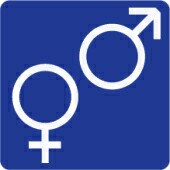
THURSDAY, June 3 (HealthDay News) — Explaining where babies come from prompts anxiety in many a parent. But having to incorporate information on test tubes or sperm donors into the story can make an already sensitive subject even more complicated.
Yet that’s the reality facing a growing number of parents.
As assisted reproduction technology, in which someone other than the intended parents donates eggs or sperm, has become increasingly common, more parents are grappling with a dilemma similar to what adoptive families have faced for decades: How should you tell your children about their origins?
In the United States alone, infertility affects about 7.3 million couples, according to the U.S. Centers for Disease Control and Prevention. But the success and availability of sperm donors, egg donors and traditional surrogates have allowed those unable to conceive on their own to still have children. Worldwide, about 200,000 babies are born each year with the help of assisted reproduction, according to the International Committee for Monitoring Assisted Reproductive Technologies.
The success of donor-assisted conception, however, has forced more parents to tackle the decision of whether to disclose to their child his or her genetic history. Some worry that disclosure will upset the child or possibly diminish the adults’ role as parents.
But the American Society for Reproductive Medicine contends that a child has the right to know. A report in 2004 by the society’s ethics committee stated that children have a fundamental interest in their genetic heritage and medical histories, and the group supports full disclosure beginning as early as 3 years of age.
“Tell early and often,” says psychologist Andrea Braverman, director of complementary and alternative medicine at Reproductive Medicine Associates of New Jersey and an ethics committee member.
Braverman argues that children can and should be told before they can even comprehend the idea. But at this early stage in development, she said, parents must tell the story in the simplest terms. For example, she said, small children might not understand the concept of eggs and sperm, but they could understand a story about parents who wanted a baby very much but needed some extra help. Over time, then, the story should be gradually expanded with more specific information to suit the child’s age and maturity level, she said.
Clinical psychologist Christine Kodman-Jones said that explaining complex concepts to children, even in simple terms, might seem daunting, but waiting until adolescence to disclose information about a child’s conception can be disruptive.
“Young adults already have a lot on their plate,” she said. “If parents delay disclosure, it becomes an issue. The longer parents wait, the bigger it gets.”
Children also need the whole story, Braverman said. “In time, technological advancements could make it much easier for genetic information to be revealed,” she explained. “If children gain pieces of information inadvertently, it sends the message that their parents are ashamed or not comfortable with the situation.” And the American Society for Reproductive Medicine warns that anything less than full disclosure could contribute to depression, confusion or low self-esteem on the part of the child.
Still, the decision to tell children about their genetic history is a personal one, and not everyone believes that full disclosure would be appropriate in every situation.
“It’s a gray area,” Kodman-Jones said. “Children guide us with their questions. Some need to see pictures and require a lot of details. Others may be overwhelmed by too much information and want a very short answer. It’s all specific to the child.”
Braverman, too, said that it’s not a one-size-fits-all scenario. “All the stakeholders must be considered — donors, parents and children,” she said. “There are some cultures in which children born through assisted reproduction technologies would not be accepted. Ultimately, we must be respectful of parents to make their own decisions.”
And in a world where reproductive technology continues to advance, Kodman-Jones advises parents to take a more holistic and sophisticated approach to the issue of disclosure.
“We all want clean and simple connections,” she said. “It’s just not life. Some relationships are just more complex than others.”
On the Web
The U.S. Centers for Disease Control and Prevention has more on assisted reproductive technology.

